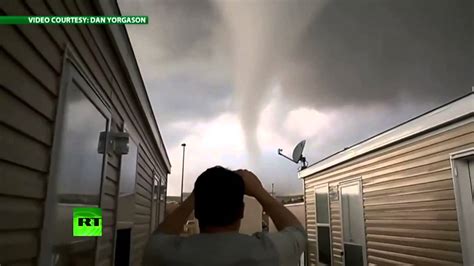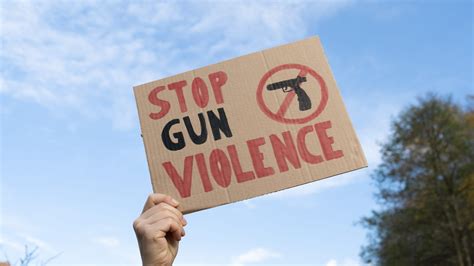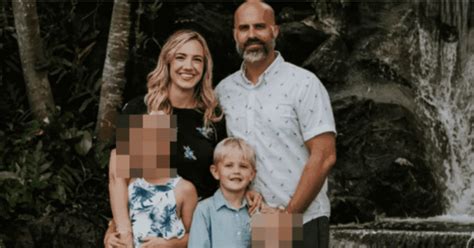
Coca-Cola is experiencing a sales slump in specific regions following the circulation of a viral video that allegedly depicts unsanitary practices at a bottling plant, prompting the beverage giant to launch extensive recovery efforts to reassure consumers and mitigate potential long-term damage to its brand reputation.
The Coca-Cola Company is grappling with the fallout from a viral video that has triggered a decline in sales in localized markets. The video, which purportedly shows unsanitary conditions within a bottling facility, has sparked widespread consumer concern and prompted the company to initiate a comprehensive response strategy aimed at restoring public trust and stabilizing sales figures.
The incident comes at a sensitive time for Coca-Cola, which, like other major beverage companies, is navigating evolving consumer preferences and heightened scrutiny of its production processes. The viral video, regardless of its veracity or the extent of the alleged issues, has amplified existing concerns about food safety and corporate responsibility, creating a significant challenge for the company’s public relations and marketing teams.
According to a statement released by Coca-Cola, the company is “aware of the video circulating online” and is “taking the matter extremely seriously.” The statement further emphasizes Coca-Cola’s “unwavering commitment to the highest standards of safety and quality” and outlines the immediate steps being taken to investigate the claims made in the video. These steps include a thorough internal review of the bottling plant in question, as well as independent audits to verify compliance with all applicable regulations and internal quality control protocols.
The precise details of the video’s content remain somewhat unclear due to the varying levels of visibility and verification on different social media platforms. However, reports suggest that the video allegedly shows workers handling bottles in a manner that violates hygiene standards and potentially compromises the integrity of the product. While the specific location of the bottling plant depicted in the video has not been officially disclosed, speculation has centered on facilities in specific regions where the sales decline has been most pronounced.
Coca-Cola’s recovery efforts are multifaceted and designed to address both the immediate concerns raised by the video and the longer-term implications for its brand image. These efforts include:
-
Internal Investigation: A comprehensive internal review of the bottling plant in question to identify any potential lapses in hygiene or quality control procedures. This review includes interviews with employees, a detailed examination of production records, and a physical inspection of the facility.
-
Independent Audits: Engagement of independent third-party auditors to conduct unbiased assessments of the bottling plant’s compliance with all relevant regulations and Coca-Cola’s own stringent quality control standards. These audits provide an objective verification of the plant’s operating procedures and help to identify areas for improvement.
-
Enhanced Quality Control Measures: Implementation of enhanced quality control measures at the affected bottling plant and potentially at other facilities to reinforce consumer confidence. These measures may include increased frequency of inspections, more rigorous testing of raw materials and finished products, and enhanced training for employees on hygiene and safety protocols.
-
Public Communication: Proactive communication with consumers and stakeholders to address concerns and provide updates on the company’s response. This communication includes press releases, social media posts, and direct engagement with consumers through online forums and customer service channels. The company aims to be transparent and forthcoming in its communication, providing accurate information and addressing concerns in a timely and responsive manner.
-
Stakeholder Engagement: Engagement with key stakeholders, including retailers, distributors, and government regulators, to address concerns and ensure that the company’s response is aligned with their expectations. This engagement involves direct communication with stakeholders, as well as participation in industry forums and regulatory meetings.
-
Marketing and Advertising: Strategic marketing and advertising campaigns designed to reinforce the company’s commitment to quality and safety and to rebuild consumer trust. These campaigns may feature testimonials from employees, highlighting the company’s rigorous quality control procedures, or showcase the company’s investments in advanced technology to ensure product safety.
The impact of the viral video on Coca-Cola’s sales has been localized, with some regions experiencing a more significant decline than others. The company has not disclosed specific sales figures for the affected markets, but reports suggest that the decline has been substantial enough to warrant immediate attention and intervention. The extent of the sales decline is likely influenced by a number of factors, including the reach and impact of the viral video in different regions, the level of consumer awareness of the issue, and the effectiveness of Coca-Cola’s recovery efforts.
Analysts suggest that the long-term impact of the viral video on Coca-Cola’s brand reputation and sales will depend on the company’s ability to effectively address the concerns raised and to rebuild consumer trust. A swift and transparent response, coupled with demonstrable improvements in quality control and communication, could help to mitigate the damage and restore consumer confidence. However, a delayed or inadequate response could further erode consumer trust and lead to a more prolonged decline in sales.
“The key for Coca-Cola is to be proactive and transparent in its response,” said a beverage industry analyst. “Consumers are increasingly demanding greater transparency and accountability from the companies they support. Coca-Cola needs to demonstrate that it is taking the matter seriously and that it is committed to ensuring the safety and quality of its products.”
The incident also highlights the growing power of social media in shaping consumer perceptions and influencing brand reputations. In today’s digital age, a single viral video can quickly reach millions of people and have a significant impact on a company’s sales and brand image. Companies need to be vigilant in monitoring social media channels and prepared to respond quickly and effectively to any potential crises.
Coca-Cola’s response to the viral video will be closely watched by other companies in the food and beverage industry. The incident serves as a reminder of the importance of maintaining high standards of hygiene and quality control, as well as the need to be prepared to respond effectively to any potential crises that may arise. The outcome of Coca-Cola’s recovery efforts could have significant implications for the industry as a whole, shaping best practices for crisis management and consumer engagement.
The incident also underscores the challenges faced by global brands in maintaining consistent quality control standards across their vast and complex supply chains. Coca-Cola operates hundreds of bottling plants around the world, each with its own unique set of challenges and operating conditions. Maintaining consistent standards across all of these facilities requires a robust quality control system, as well as ongoing monitoring and training.
The company’s response to the viral video will likely involve a review of its existing quality control procedures, as well as the implementation of new measures to enhance oversight and accountability. This may include increased frequency of audits, more rigorous testing of raw materials and finished products, and enhanced training for employees on hygiene and safety protocols.
In addition to addressing the immediate concerns raised by the viral video, Coca-Cola also needs to address the broader issue of consumer trust. In recent years, there has been a growing trend of consumers seeking out healthier and more sustainable beverage options. Coca-Cola has been working to diversify its product portfolio and to offer a wider range of healthier options, but the company still faces challenges in overcoming negative perceptions about its core products.
The viral video incident could further erode consumer trust and make it more difficult for Coca-Cola to compete in the evolving beverage market. The company needs to demonstrate that it is committed to addressing consumer concerns about health, sustainability, and ethical sourcing. This may involve investing in new technologies and processes, as well as engaging with consumers in a more transparent and authentic way.
The situation surrounding the viral video and its impact on Coca-Cola sales is a complex and evolving one. The company’s response will be crucial in determining the long-term impact on its brand reputation and financial performance. By taking swift and decisive action, communicating transparently with consumers, and demonstrating a commitment to quality and safety, Coca-Cola can mitigate the damage and rebuild consumer trust. However, a misstep could further erode consumer confidence and lead to a more prolonged decline in sales. The coming weeks and months will be critical in determining the outcome of this crisis.
The incident also brings to light the intricate relationship between large corporations and their franchise operations. While Coca-Cola sets the global standards and provides the concentrate, the actual bottling and distribution are often handled by independent franchise partners. This decentralized model, while offering scalability and local market expertise, can also create challenges in maintaining uniform quality control and responding swiftly to crises. The viral video incident underscores the importance of clear communication channels, rigorous auditing processes, and strong partnerships between Coca-Cola and its franchisees to ensure consistent product quality and protect the brand’s reputation.
Moreover, the incident raises questions about the responsibility of social media platforms in verifying the authenticity of viral content. While social media has democratized information sharing, it has also become a breeding ground for misinformation and unsubstantiated claims. The viral video, regardless of its veracity, has demonstrated the potential for social media to amplify negative sentiment and damage brand reputations. Social media platforms may need to consider implementing more robust mechanisms for verifying the authenticity of viral content and preventing the spread of misinformation.
Coca-Cola’s experience also provides valuable lessons for other companies that operate in industries with high levels of public scrutiny. The importance of proactive crisis management, transparent communication, and a commitment to quality and safety cannot be overstated. Companies need to be prepared to respond quickly and effectively to any potential crises that may arise, and they need to have robust systems in place to monitor social media and address consumer concerns.
The recovery efforts will also likely include a focus on employee training and engagement. Ensuring that employees are properly trained on hygiene and safety protocols is essential for maintaining product quality and preventing future incidents. Employee engagement is also crucial, as employees are often the first line of defense in identifying and addressing potential problems. By fostering a culture of safety and quality, Coca-Cola can empower its employees to take ownership of product quality and to contribute to the company’s recovery efforts.
Finally, Coca-Cola’s response to the viral video will likely involve a review of its overall brand strategy. The company needs to consider how it can best communicate its values and its commitment to quality and sustainability to consumers. This may involve developing new marketing campaigns, investing in new technologies, and engaging with consumers in a more authentic and transparent way. By taking a holistic approach to brand management, Coca-Cola can strengthen its brand reputation and build long-term consumer loyalty.
The incident serves as a case study in crisis management in the digital age. The speed at which the video spread and the intensity of the public reaction underscore the challenges that companies face in managing their reputations in an era of instant communication and heightened consumer expectations. Coca-Cola’s response will be analyzed by crisis management experts for years to come, and its success or failure will provide valuable lessons for other companies that may face similar challenges.
FAQ Related to the Coca-Cola Sales Slump:
1. What triggered the recent sales decline for Coca-Cola?
A viral video allegedly depicting unsanitary conditions at a Coca-Cola bottling plant has led to consumer concerns and a subsequent sales slump in localized markets. The video, circulating on social media, raised questions about the company’s hygiene and quality control standards.
2. What steps is Coca-Cola taking to address the concerns raised by the viral video?
Coca-Cola has initiated a multi-faceted recovery plan, including an internal investigation of the bottling plant in question, independent audits by third-party auditors, enhanced quality control measures, proactive public communication, engagement with stakeholders, and strategic marketing and advertising campaigns designed to rebuild consumer trust.
3. Has Coca-Cola confirmed the authenticity of the viral video?
Coca-Cola has acknowledged being “aware of the video circulating online” and is “taking the matter extremely seriously.” However, the company has not explicitly confirmed or denied the authenticity of the video. Instead, they are focusing on a thorough investigation and emphasizing their commitment to safety and quality.
4. Which regions have been most affected by the sales decline?
The article indicates that the impact of the viral video has been localized, with some regions experiencing a more significant sales decline than others. Specific sales figures and affected regions have not been publicly disclosed by the company.
5. How might this incident impact Coca-Cola’s brand reputation in the long term?
The long-term impact on Coca-Cola’s brand reputation depends on the company’s ability to effectively address the concerns raised, rebuild consumer trust, and demonstrate a commitment to quality and safety. A swift and transparent response could mitigate the damage, while a delayed or inadequate response could lead to a more prolonged decline in sales and brand perception.









